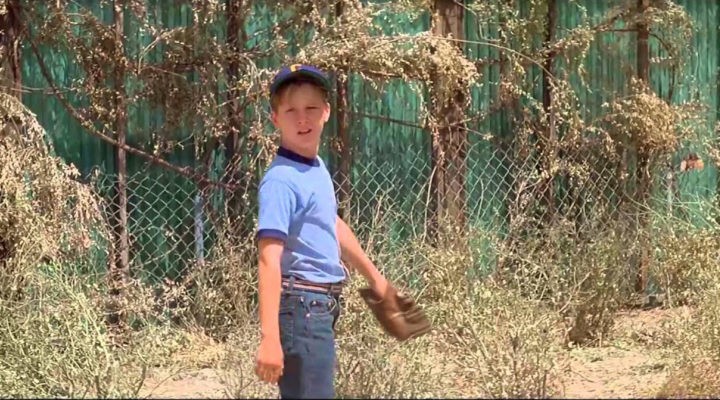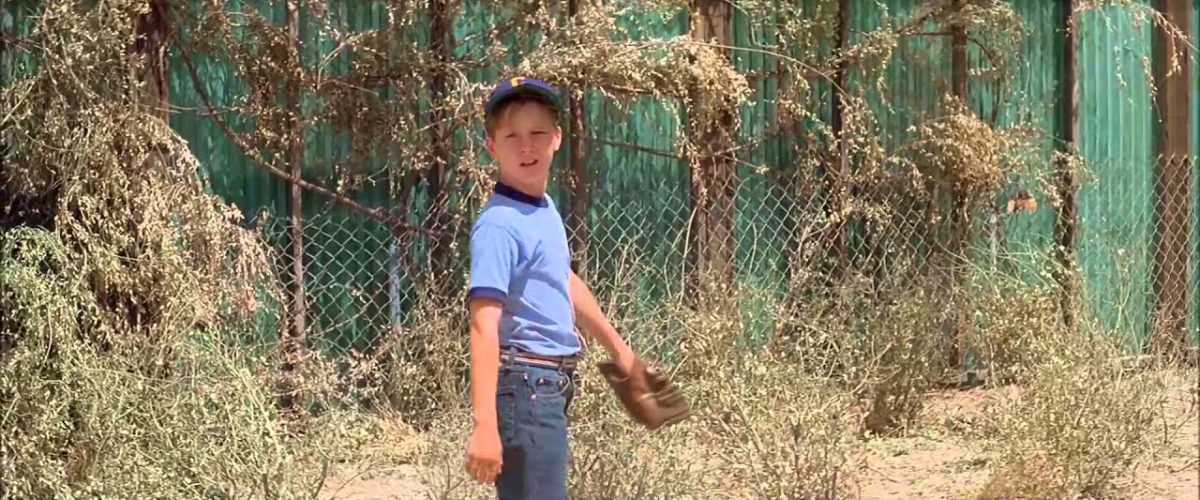As a kid, I was a bad baseball player and always got stuck out in right field, where there’s less action happening and less chance I could mess up an important play.
In these days of COVID vaccination drives, you may feel like that too — if you’re young and healthy and assume you’re not likely to contract COVID-19 and if you do get it you’re likely to have a mild case with no ill effects. You may see yourself living out in right field, believing all the action is happening among those playing the infield.

Mark Wingfield
The problem is, sometimes balls do make it to right field, and the failure to be prepared can lose the game. Even the seemingly insignificant right-fielder is part of the team. Just ask Hank Aaron, Reggie Jackson or Sammy Sosa.
The Los Angeles Daily News reported this weekend that — following national trends — the current transmission of COVID there is being fueled by younger, unvaccinated residents. Of 1,094 new cases in the county, 83% are among people under age 50 years, with the majority of those among 18- to 49-year-olds.
“As cases increase, the urgency to get more people vaccinated is rising. Nearly 100% of new cases are occurring among those not fully vaccinated,” County Public Health Director Barbara Ferrer told the paper. “All of our COVID-19 vaccines are very effective at protecting you from severe disease from COVID-19 and variants of concern like the Delta variant.”
Similar stories are being told across America, as younger adults choose not to be vaccinated and therefore become carriers of deadly disease. Almost all COVID deaths in America now are among the unvaccinated, and almost all the transmission is carried by the unvaccinated.
I want to urge you to take one for the team and get vaccinated.
Clearly, you’ve likely heard this all before and have chosen to ignore it. And I realize I’m just one more person nagging you to do something you’ve resisted doing. Why should you hear me out?
“I realize I’m just one more person nagging you to do something you’ve resisted doing. Why should you hear me out?”
Consider this to be a message from your collective group of family and friends who have tried to reason with you, cajole you, maybe even shame you to get vaccinated against COVID-19. These are people who love you and want the best for you, but they’re also people who don’t want your resistance to make them and others sick.
Unless you have a rare and serious medical condition that prevents you from being vaccinated, there is no good reason to keep holding out. This is no longer a matter of cordial disagreement. This is a matter of life and death.
We have the opportunity — at least within the United States — to reach a level of herd immunity that will render the coronavirus unable to keep transmitting itself and mutating. There is a way to end this thing, but it requires your participation.
I understand that you may have legitimate concerns about the long-term effects of vaccination. Those of us who have lived more years than we likely have left to live may find it easier to take a perceived risk than those who are younger.
A friend of mine who is vaccinated but has family members who are not vaccinated explained the reasoning of his family members, who are well-educated young adults with children.
“A key thing for them is that we just don’t know what the long-term effects of the vaccine will be for themselves and especially for their kids,” my friend said. “They would rather deal with the risk of COVID now versus the risk of some sort of adverse effect five, 10 or 20 years down the road due to the vaccine. They just don’t think there is enough long-term evidence. They would point to the fact that other vaccines were developed and perfected over the course of many years and don’t trust a vaccine developed in about a year’s time.”
“This is a legitimate concern. It is a concern that should be balanced by the facts, however.”
Again, this is a legitimate concern. It is a concern that should be balanced by the facts, however. While the mRNA vaccines do appear to be “new” or to have been created in less than a year, the reality is that the science behind them was years in the making. What we’ve seen in the past year is the final application of research and testing done years before.
Just because these vaccines are “new” to our understanding doesn’t mean they’re new to medicine or science or that they’re not trustworthy.
Think of it this way: Suppose tomorrow you are diagnosed with a severe and aggressive form of cancer, one that previously had little hope of cure. And yet your doctor says to you, “There’s a new treatment for this cancer that has proved to be 95% effective in curing it.” Would you turn down that cancer treatment just because it’s new? I doubt it.
The primary COVID vaccines available in America right now are 95% effective in preventing us from getting severe cases that lead to long-term illness and death. In medical terms, that is an incredibly high success rate, as close to a sure thing as you’ll find.
Yes, there are some cases where people have had reactions or even died after receiving one of the vaccines. But those cases are rare and are far less common than the deadly effects of other things you willingly do every day — riding in a car, eating food, drinking water. And your chances of getting COVID without having a vaccine are immensely greater than the risk of being harmed by the vaccine.
COVID kills about two of every 1,000 people infected. By comparison, the risk of getting the rare blood clots documented in connection with the Johnson and Johnson vaccine is two per 1,000,000. Put in layman’s terms, you are 1,000 times more likely to die of COVID than to get blood clots from the Johnson and Johnson vaccine.
“Put in layman’s terms, you are 1,000 times more likely to die of COVID than to get blood clots from the Johnson and Johnson vaccine.”
Here are some other comparisons: You stand a one in six chance of dying of heart disease, a one in seven chance of dying of cancer, a one in 107 chance of dying in a motor vehicle accident, and a one in 289 chance of dying from a gun assault. Now, tell me again why you think getting a COVID vaccine is so risky.
If you get COVID — which is an increasingly likely scenario today for the unvaccinated — you will transmit it to others. Even if you get COVID and remain asymptomatic or have a mild case, you will infect other people. Not maybe, not possibly, but definitely. Unless you isolate yourself from the moment of infection — which is often impossible to know — you will unwittingly spread disease to other people. That’s how contagious the new Delta variant of COVID has become.
Being vaccinated reduces the likelihood that you will transmit the virus to others in half.
Many of us have been saying for months that COVID prevention is a matter of caring for our neighbors as Jesus taught: “Love your neighbor as yourself.” But pollsters have found this biblical message is effective only with some people and doesn’t resonate with certain portions of the Christian community.
I’d like to call you back further into the Bible’s story than that, all the way back to the early chapters of Genesis. Remember the story of Cain and Abel, and how a jealous Cain killed his brother? And how God came looking for Abel and asked Cain, “Where is your brother?” And how Cain acted all innocent and replied, “Am I my brother’s keeper?”
“Thousands of people are dying, and we who refuse to embrace the cure are contributing to their deaths.”
The answer to that question is a resounding “yes.” The Bible teaches from the beginning that we are responsible to care for the life and nurture of our brothers and sisters (and not just biological siblings, by the way).
In this momentous time, thousands of people are dying, and we who refuse to embrace the cure are contributing to their deaths. God is asking us, “Where is your brother? Where is your sister?”
If you’ve chosen to be unvaccinated, remember, this decision isn’t just about you. It’s about your role on the team.
Mark Wingfield serves as executive director and publisher of Baptist News Global.
Related articles:
Here’s the link between COVID vaccine denial and opposition to sensible gun control
Interpreting the data: Why are some Christians getting vaccinated and others aren’t?
6 things you should know about the COVID vaccine
4 in 10 Americans don’t see getting vaccinated as a way to ‘love your neighbor’


